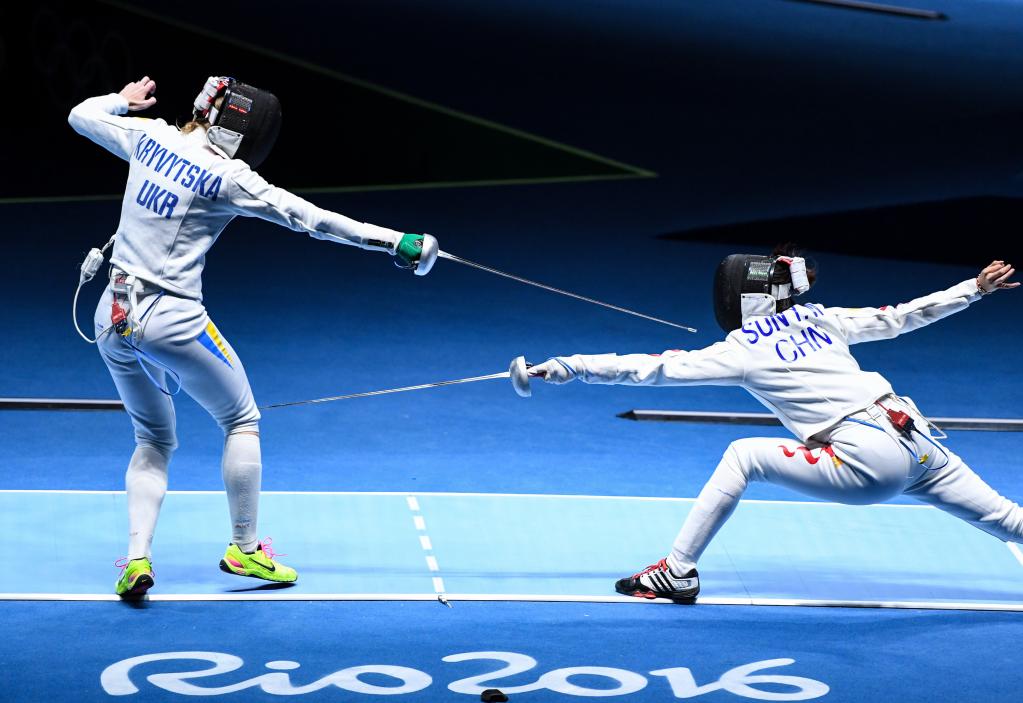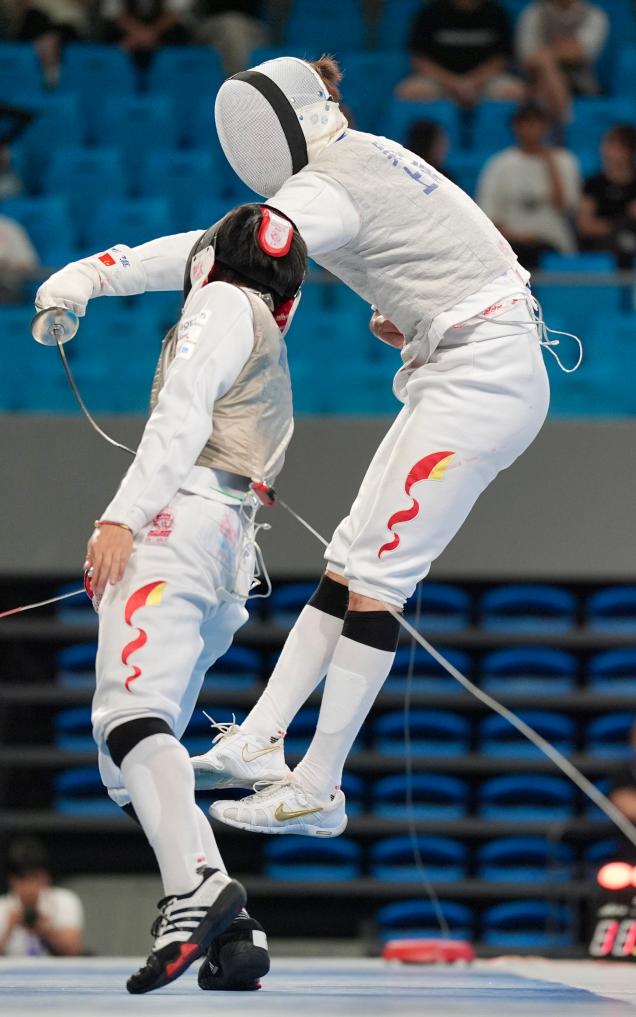Introduction: France’s Unstoppable Dominance in Fencing
The Fencing World Championships, one of the sport’s most prestigious events, consistently showcases the best fencers from around the world. For years, France has stood at the pinnacle of fencing, particularly in the team events, where its fencers have demonstrated extraordinary skill, discipline, and coordination. Whether in men’s or women’s events, the French team has been a dominant force in the world of fencing, winning numerous team gold medals at the World Championships.
However, as the upcoming Fencing World Championships approach, the question arises: Can anyone break France’s stranglehold on the team gold, or will they continue their reign of dominance? With rising talent from various nations, new strategies, and an evolving competitive landscape, this year’s competition promises to be one of the most exciting and unpredictable yet.
In this article, we’ll delve into the factors behind France’s dominance, the emerging challengers, and what it will take for another nation to dethrone the French team in the upcoming World Championships.
I. France’s Unyielding Grip on Fencing’s Team Gold
A. The Legacy of French Fencing
For decades, France has been synonymous with excellence in fencing. With a rich history and a deep tradition in the sport, French fencers have excelled in every discipline—foil, epee, and sabre—both individually and in team events.
In particular, the French men’s epee team has been a force to be reckoned with. Having won multiple World Championship golds and Olympic titles, they have built a legacy of tactical brilliance and mental resilience. The same can be said for the French women’s foil team, which has dominated in recent years, claiming victory in several world championships and Olympic Games.
This success isn’t a fluke; it is the result of years of investment in fencing infrastructure, world-class training, and a strong domestic competition system. The French Fencing Federation (FFE) has been instrumental in fostering the development of young talent, ensuring that their top athletes are consistently at the forefront of international competition.
B. The Key to Their Success: Technique and Team Coordination
What sets the French team apart is their ability to seamlessly combine individual technique with exceptional teamwork. Fencing is often seen as an individual sport, but in the team events, the dynamics are much more complex. The French have mastered the art of strategic coordination and mental fortitude, especially when it comes to handling the pressure of team matches. The seamless transitions between fencers, the tactical planning for each bout, and their ability to read the game have allowed France to consistently outmaneuver opponents on the world stage.
This combination of individual brilliance and team synergy has been a key factor in their dominance. Whether in the men’s or women’s team events, French fencers know how to execute their strategies to perfection, leaving little room for mistakes.
II. Emerging Challengers: Who Can Break France’s Reign?
While France has been dominant, the sport of fencing is constantly evolving. New challengers from both traditional and emerging fencing nations are making their presence felt on the world stage. As we look ahead to the 2025 Fencing World Championships, there are several countries that could pose a serious challenge to France’s team gold dominance.
A. Italy: A Resurgent Powerhouse
Italy has long been one of France’s strongest competitors in fencing, particularly in the men’s foil and women’s sabre events. With a rich history of success at the World Championships and Olympics, Italy is always a formidable contender. The Italian men’s foil team has produced world-class athletes like Daniele Garozzo and Alessandro Milan, and they have consistently competed with the French for top honors in the team events.
In addition, the Italian women’s sabre team has been on the rise, with Marta Garzonio and Rossella Fiamingo showing impressive form in recent years. Italy’s combination of elite athletes, a strong domestic infrastructure, and a competitive drive make them one of the most likely teams to challenge France for the team gold in the upcoming championships.
B. Russia: A Historic Rival
Despite facing some challenges in recent years, Russia remains a traditional powerhouse in fencing, especially in the epee and sabre events. With multiple Olympic and World Championship medals to their name, the Russian team has the experience and depth to compete with France.
The Russian men’s epee team has been a consistent contender at the World Championships, and their women’s teams, particularly in foil, have shown flashes of brilliance. The Russians have a unique style, focusing on aggressive fencing and quick, tactical exchanges. If they can execute their strategies flawlessly and maintain consistency throughout the tournament, Russia could very well end France’s streak of team golds.
C. The United States: Rising Stars
Over the past few years, the United States has emerged as a strong contender in the world of fencing. The U.S. men’s and women’s teams, particularly in the sabre and foil categories, have shown impressive growth, with Race Imboden and Lee Kiefer leading the charge. Lee Kiefer, in particular, has had an outstanding career, recently becoming the first American woman to win an Olympic gold in fencing. With rising stars and increasing support for fencing in the U.S., the American teams have the potential to disrupt the status quo and challenge the top teams in the world.
The U.S. team’s youthful energy and talent development programs are creating a new generation of fencers who are hungry for international success. If the Americans can bring their A-game and maintain their momentum in the World Championships, they might just surprise the French in the team events.
D. China: The Sleeping Giant
Though often overshadowed by the European powers, China has been making great strides in fencing, particularly in the women’s epee and women’s foil events. With a large population and growing interest in the sport, China has the resources and potential to challenge the established teams. Lei Ping and Zhu Chengzhou are names to watch in the upcoming World Championships, and their focus on technical precision and strong defensive skills could be the key to upsetting the French team’s dominance.
As China continues to improve its fencing infrastructure and gain experience in international competitions, it may soon be poised to claim gold in team events, breaking the stranglehold that countries like France have had on the podium.

III. What It Takes to Break France’s Monopoly: Keys to Success
A. Tactical Innovation and Adaptability
In order to break France’s dominance, it will take more than just talented individual fencers. Teams will need to develop innovative strategies and adapt to the French team’s strengths. France’s style of fluid coordination and precise tactical execution can be difficult to counter, so challengers must work on breaking the French rhythm and exploiting any weaknesses in their strategy.
B. Team Cohesion and Mental Toughness
Fencing is often described as a mental battle as much as a physical one. The ability to stay calm under pressure, communicate effectively as a team, and execute strategies with precision is essential to overcoming a dominant team like France. Mental resilience and team cohesion will be key for any challenger looking to dethrone the French squad. It’s not just about individual brilliance; the ability to remain unified and composed in crucial moments will be crucial.
C. Leveraging Home Advantage
For countries hosting the World Championships, there’s always the added boost of home advantage. Countries like Italy and Russia, who have strong domestic support and history in the sport, will look to use the familiar atmosphere to fuel their performances and possibly gain an edge over the French. Hosting the event often provides a psychological boost, and teams will look to capitalize on the home crowd’s energy.
IV. Conclusion: A Year of Uncertainty and Excitement
As the 2025 Fencing World Championships draw closer, the landscape of international fencing remains as exciting as ever. France’s unquestionable dominance in the team events has been a defining feature of the sport for years, but with the rise of Italy, Russia, the United States, and China, there is more uncertainty than ever before. These nations are bringing fresh talent, innovative tactics, and newfound ambition to the table.
While France will undoubtedly be a formidable opponent, the competition is fierce, and the possibility of seeing a new nation atop the team podium is more real than ever. With so many countries now vying for the coveted gold medal, the 2025 World Championships promises to be one of the most thrilling and unpredictable editions in recent history.
The question remains: Can anyone break France’s monopoly? Only time will tell, but this year’s event is sure to be one for the history books.






























Discussion about this post